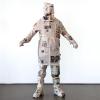Search Results
Showing results 1 to 16 of 16
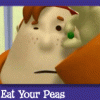
Pea Brain!: Explorations in Estimation
Source Institutions
In this activity, learners use two different techniques to estimate how many little things fit into one bigger thing.
More Bubbles!
Source Institutions
In this math activity, learners make their own bubble wands and determine if the size of the wand affects the number of bubbles it produces.
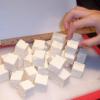
Exploring at the Nanoscale
Source Institutions
This lesson focuses on how nanotechnology has impacted our society and how engineers have learned to explore the world at the nanoscale.
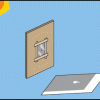
Finding the Size of the Sun and Moon
Source Institutions
In this activity, learners build a simple pinhole viewer. They use this apparatus to project images from a variety of light sources, including a candle, the Sun, and the Moon.
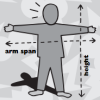
Are you a Square or a Rectangle?
Source Institutions
In this activity, learners investigate whether more people are squares or rectangles. People with similarly sized heights and arm spans are classified as squares.
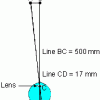
Measuring Your Blind Spot
Source Institutions
In this activity, learners calculate the width (horizontal diameter) of the blind spot on their retina. Learners make a blind spot tester using a piece of notebook paper.
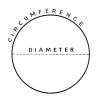
Pi Graph
Source Institutions
In this activity, learners use a straight line to learn about circles. Learners measure and record the diameter and circumference of different sized cylindrical objects on a chart.
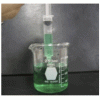
Sizing Up Temperature
Source Institutions
In this activity, learners explore Charles' Law in a syringe.
Find Someone: Use Math to Learn About Friends
Source Institutions
Create a “Find Someone” list, with about 10 items, each containing a shape, number, or measurement. Can you find someone in the group with hair about 4 inches long? Someone wearing parallel lines?
Mystery Jars: Estimate Contents
Source Institutions
This activity puts a mathematical twist on the familiar “guessing jar.” No guesses allowed, estimates only.

How Big is Small
Source Institutions
In this classic hands-on activity, learners estimate the length of a molecule by floating a fatty acid (oleic acid) on water.
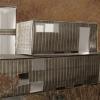
Make a Model of a Home Made From Shipping Containers
Source Institutions
In this activity, learners watch a video to learn about a couple who built a home out of shipping containers in Brooklyn, New York.
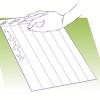
Sea Turtle Populations
Source Institutions
In this activity (on page 2 of PDF under GPS: Sea Turtles Activity), learners will model how a sea turtle population changes over time, from eggs to adults, using puffed rice.
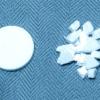
Fizzy Nano Challenge
Source Institutions
This lesson focuses on how materials behave differently as their surface area increases.
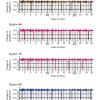
Transit Tracks
Source Institutions
In this space science activity, learners explore transits and the conditions when a transit may be seen.

